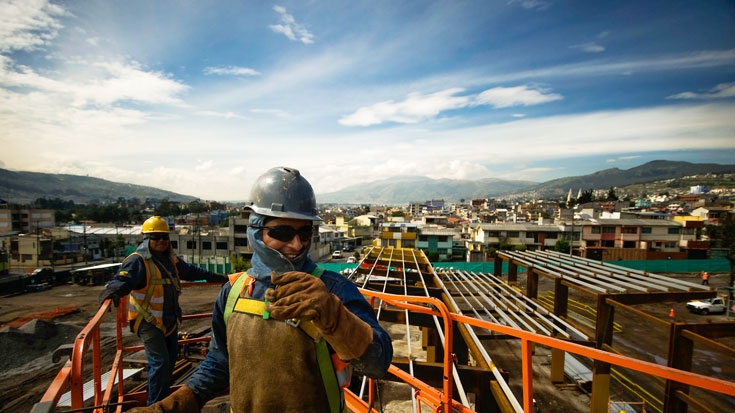Bank Group Contribution
The program served a as a leveraging resource to enable outcomes from other Bank-supported projects, such as:
- The Quito Metro Line One Project.
- Manta public services improvements.
- Ibarra transport infrastructure improvements.
- Advances in traffic safety, focusing on data aspects.
- Just-in-time assistance on the commercial and revenue enhancement aspects of airport safety.
Partners
The Quito Metro Line One Project was co-financed by the Inter-American Development Bank (IADB), the Andean Development Corporation (CAF), and the European Investment Bank (EIB). Collaborating Partners included but were not limited to the Ministry of Finance, Municipality of Quito, Municipality of Cuenca, Ministry of Transport and Public Works, Ministry of Planning & Development, Ministry of Coordination. To promote donor harmonization, coordination meetings took place with the Government of Spain, the IADB, and the CAF. Further, as CAF has developed a regional urban transport observatory, particular attention will be paid to leverage ongoing efforts and use of available data.
Moving Forward
As this program is demand driven, new deliverables can arise from the collaboration between entities in Ecuador and the World Bank, based on new needs and changes in government structure or policies. Possible future activities could scale up efforts incorporate cycling infrastructure on a wider scale and develop estimates for the potential for carbon footprint reduction through greater use of bicycles. The technical assistance also envisions analytical work to support more energy efficient mobility, as could be incentivized with the reduction of fuel subsidies proclaimed in the Plan Nacional del Buen Vivir.
Within the traffic safety field, new possibilities may arise through partnerships between the Bank and those municipalities that already have improved traffic management, enforcement, and control (i.e. Cuenca, Ibarra, Manta, Ambato and Loja). Technical assistance would facilitate further learning and experience exchanges between cities within Ecuador and elsewhere. Finally technical assistance could leverage resources from ongoing operations seeking to mobilize additional trust fund resources.
Beneficiaries
Beneficiaries include the staff and experts from the Municipality of Quito, the Municipality of Cuenca, and the Ministry of Finance. In addition, the Government and urban infrastructure finance experts benefited from the workshops, especially the staff from Cuenca dedicated to non-motorized mobility. Operational staff from the Airport Corporation of Cuenca also benefited.
A more effective and cycle inclusive planning process will also improve the lives of residents and tourists of Cuenca.
Manuel Larriva Carrera, who lives in Cuenca, and works for EMOV_EP (Empresa Pública de movilidad no motorizada) as a non-motorized mobility analyst reported: “The institutional strengthening acquired with this technical assistance, has built the necessary capacity within the municipality to develop projects like the public bicycle or the necessary cycling urban infrastructure to complete the network.”
Verónica Hormazabal, who works in the same department as Manuel, thinks that “The vision of Traffic and Transportation under which the city of Cuenca was being handled, did not contribute to optimal solutions for the growing rate of motor vehicles or for the integration of all the transport modes. After the technical assistance provided by the World Bank, this vision changed and is now heading to a concept of sustainable mobility and respect for all users”
